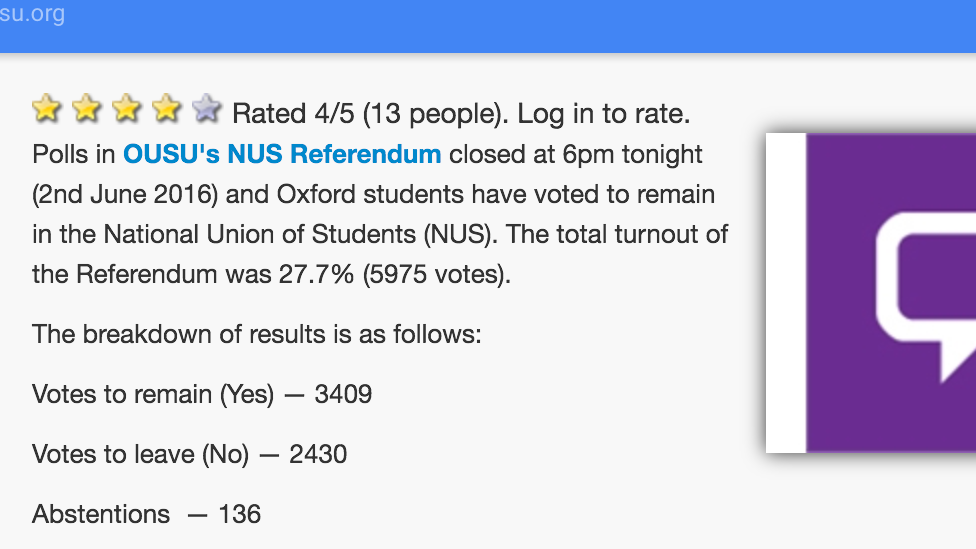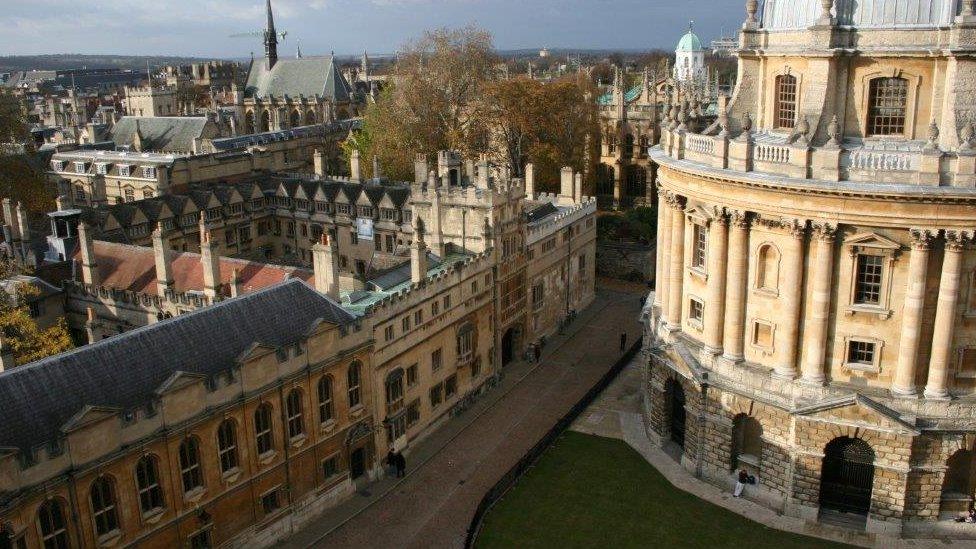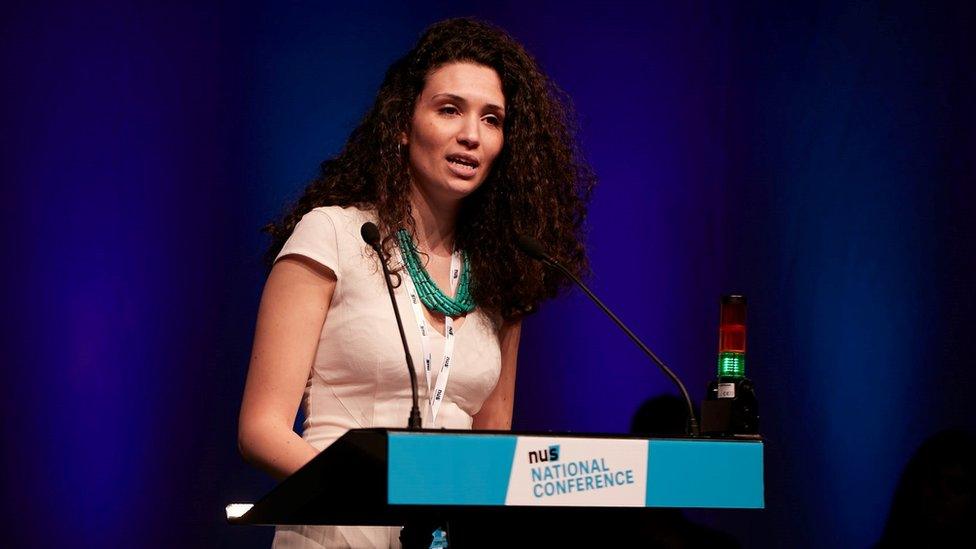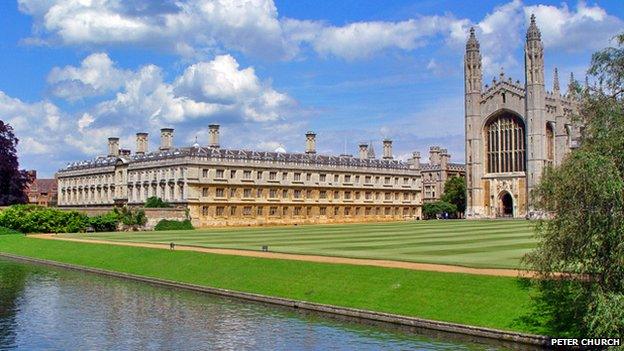Oxford students vote to stay in National Union of Students
- Published

Oxford University students voted to remain with the NUS
Oxford University students have rejected a motion to leave the National Union of Students.
A total of 57% of just under 6,000 who voted in a referendum on the subject wanted to remain affiliated.
Several universities have been voting on disaffiliation after Malia Bouattia, who has been accused of anti-semitism, was elected NUS president.
Students at Cambridge University last week and Essex University this week also voted to remain affiliated.
At Essex University, 1028 students voted, with 582 opting to remain and 446 wanting to leave.
Essex Students Union President Adrian Chira said the decision meant Essex students would continue to have a national voice.
NUS vice-president Richard Brooks said he believed the debate could make the union stronger.
"We are a pluralistic and democratic organisation and criticism and debate are welcomed," said Mr Brooks.
"Where there are legitimate concerns we will address them and ultimately we believe that this massive participation of students in democracy will make our organisation stronger and more relevant."
He promised that concerns about anti-semitism would not be ignored.
"We take these concerns seriously and we will act on them. We hope to rebuild trust with Jewish students."
Oxford results
5,975 students voted - a turnout of 27.7%
3,409 or 57% voted against disaffiliation
2,430 or 41% voted for disaffiliation
136 or 2% abstained

The NUS says it will take Oxford students' concerns seriously
Anne Cremin, who ran Oxford's No Thanks NUS campaign, said they were disappointed at the results of the campaign but said the team had felt outgunned by the NUS national campaign team.
"This was a David and Goliath contest from the start - a grassroots movement of busy and passionate students on the one hand and full-time sabbatical officers and the apparatus and budget of a national organisation on the other.
"We are proud that our campaign was run by Oxford students and for Oxford students, without help from outside - our brilliant activists give us much hope for the future.
"However, the most important thing for us is that this referendum occurred. We consider it a major achievement that Oxford students were given a direct say on this issue and we hope this sets a precedent for more open and democratic student politics here at Oxford."

New NUS president Malia Bouattia has been accused of anti-semitism
Elected in April, Ms Bouattia, 28, is the first black Muslim to hold the post of NUS president.
Complaints of anti-semitism followed a blog she co-wrote in 2011 which described Birmingham University as "something of a Zionist outpost in British Higher Education".
In 2014 she made comments about what she said were "mainstream Zionist-led media outlets".
Last week a leaked letter published by a student newspaper said that the NUS ran an investigation a year ago into the allegations of anti-semitism against Ms Bouattia, which found her guilty of misconduct.
The Tab newspaper, external in Cambridge says the letter was written in response to complaints of anti-semitism by Ms Bouattia.
According to the letter the investigation concluded it was not Ms Bouattia's intention to be anti-semitic but it was not unreasonable to regard some of her comments as anti-semitic.
The Tab said Ms Bouattia had been given an informal warning, asked to write a letter of apology and familiarise herself with the NUS code of conduct.
A spokesman said the NUS would not comment on the detail but confirmed an investigation had taken place, led by an independent person.
Ms Bouattia herself has said she is "extremely uncomfortable with insinuations of anti-semitism", adding: "For me to take issue with Zionist politics is not me taking issue with being Jewish".
More disaffiliation votes are expected at York, Nottingham and Durham universities.
So far Newcastle, Hull and Lincoln have disaffiliated while Oxford, Cambridge, Essex, Exeter, Warwick and Surrey will remain.
Votes at Bath Spa, Loughborough and Worcester universities were ruled inquorate as too few students took part.
- Published27 May 2016

- Published13 May 2016
